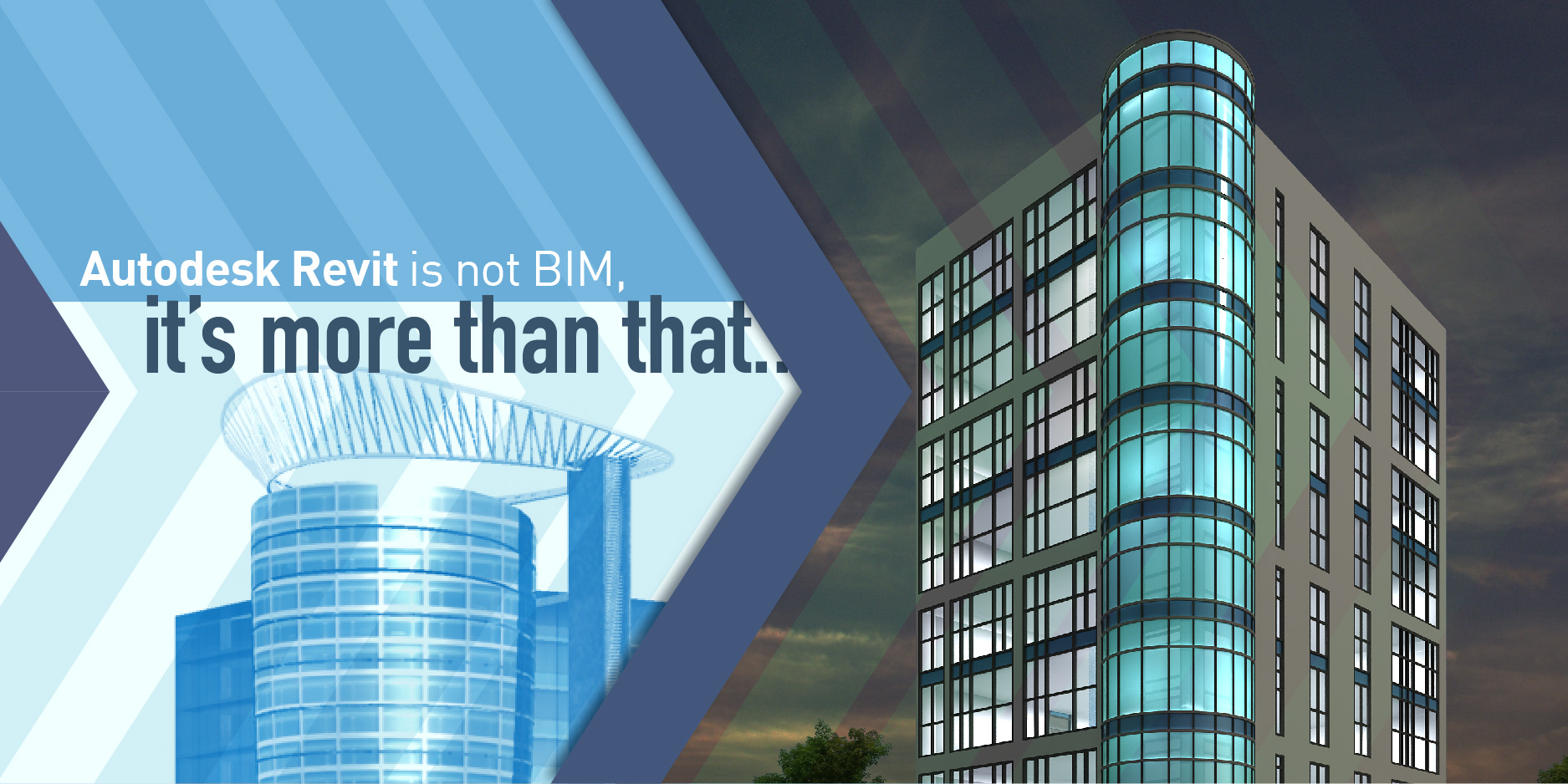Autodesk Revit is not BIM, it’s more than that
Revit and Building Information modeling (BIM)

Revit is one of the BIM tool to create intelligent 3D models
In existence since more than a decade now, there is still a major confusion between Building Information Modeling and Revit, where BIM is considered to be a piece of software whereas Revit as BIM in itself. However; the fact is that Revit is one of the BIM tool to ease the workflow by creating intelligent 3D models from point clouds with high detail. It further helps in evaluating the existing structure, envision the changes, and design better.
BIM utilizes three dimensional, real time and dynamic CAD modeling software, for 3D modeling, to increase productivity in the design and construction; as the drawing consistency is maintained across – eliminating errors. BIM is all about the basic process of creating building information during the design of architecture. It allows to visualize the building and different objects in different views used across drawing production.
Revit is a 2D/3D CAD modeling program developed by Autodesk
On the other hand Revit is a 2D/3D CAD modeling program developed by Autodesk. It’s a powerful database consisting of project information at several stages in the project building life cycle. This database uses Revit file for storing BIM models.
A building is created using 3D objects, to create families, including walls, floors, roofs, windows, doors and several other objects. Then these families are saved in form of RFA files and imported into database of Revit as and when required. Revit database is a single database file represented in various ways which are important for designs that include plans, elevations, sections and schedules.
Revit is used discipline specific for Architectural, Structural and MEP
Of the various version of Revit, they are used according to particular disciplines namely, Architectural, Structural and MEP. The general process of working through the system starts with the architect building the model in Revit architecture. The architectural model thus prepared, is sent to the structural and MEP engineers.
Upon each of these departments linking this architectural model into their own workspace, begins the work of inserting beams, columns, popes and several other electrical connections.
The engineers send the model back to the architects and then the architects finish the process by linking every individual model to the main model. All the work created by engineers and architects will finally display the original files that are created before initiation of the process.
BIM along with Revit enables design support service providers to deliver BIM services including:
- 2D floor plans, elevation and sections from scanned data
- Laser scan to BIM 3D information rich 3D models for architectural, structural and MEP requirements
- Point cloud to BIM solutions and 3D model development
- Tracing and surface reconstruction from point cloud data
Revit is considered to be of the best technique for the implementation of BIM in the building construction industry. It has opened up a lot of avenues of growth in the digital building industry in future.












